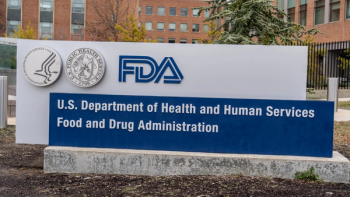
Pharma Must Adopt New Development Paradigms, Says Tufts Report
Change has never been the word most associated with pharma. Irrespective of a record-breaking number of newly approved drugs over the last two years, a new report just out warns that continued growth is not sustainable unless R&D efficacies at drug companies are addressed and new paradigms adopted.
Change has never been the word most associated with pharma. Irrespective of a record-breaking number of newly approved drugs over the last two years, a new report just out warns that continued growth is not sustainable unless R&D efficacies at drug companies are addressed and new paradigms adopted.
As clinical trials continue to improve their operational efficiencies, R&D must keep pace to move forward with their prodigious output of new products and to insure commercial success, says Kenneth Kaitin, director of the US Tufts Center for the Study of Drug Development (Tufts CSDD), which produced the study,
To give you an idea of just how slow pharma moves, Kaitin pointed out that the drug development model has not fundamentally changed since 1962, when U.S. Senator Estes Kefauver and Representative Oren Harris’s Drug Efficacy Amendment established the current standard for clinical testing of investigational drugs in the U.S.
Chances are the name Estes Kefauver is not familiar to the majority of people reading this blog. But in his day, Senator Kefauver was a mover and shaker in the power corridors of the nation’s capital. Beloved by progressive Democrats, he was also famous for wearing his trademark coonskin cap, which prompted the Davy Crockett craze of the 1950′s (I had one).
To move forward from the past and to be in sync with today’s clinical design improvements and pharma’s new, progressive partnership models “will depend on the development of industry best practices, which will enable companies to maximize their formidable R&D investment and help ensure future commercial success,” suggests Kaitin.
Kaitin also pointed out the other highlights from the outlook for the coming year, including:
• A growing concern over expensive, late-stage clinical development failures will lead firms to reassess their use of meta-analyses and subgroup analysis and make more realistic assessments about the likelihood of candidate success.
• Adoption of adaptive clinical trial designs will accelerate, particularly in earlier clinical phases, as cross-functional teams within sponsor companies look to increase program success rates while lowering costs and disruptions from protocol amendments.
• The U.S. Food and Drug Administration will foster greater use of patient-reported outcomes to support labeling claims in drug applications and make greater use of social media and the Internet to communicate with patients, caregivers, and patient advocates.
• Sustaining the recent pace of investments in new biotech companies will be a major challenge in 2014, spurring further development of alternative financing approaches, e.g., industry based venture capital groups and patient support foundations.
• More approvals of co-developed companion diagnostics and therapeutics are likely, but diagnostics without evidence of positive impact on health outcomes will continue to face reimbursement challenges.
Newsletter
Lead with insight with the Pharmaceutical Executive newsletter, featuring strategic analysis, leadership trends, and market intelligence for biopharma decision-makers.




